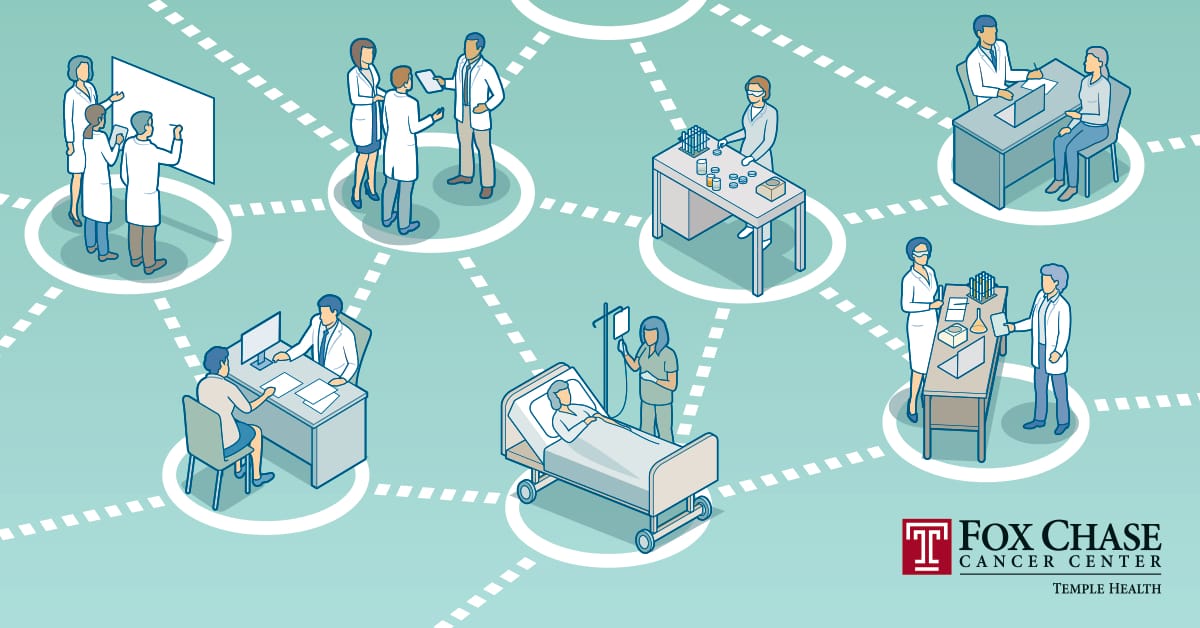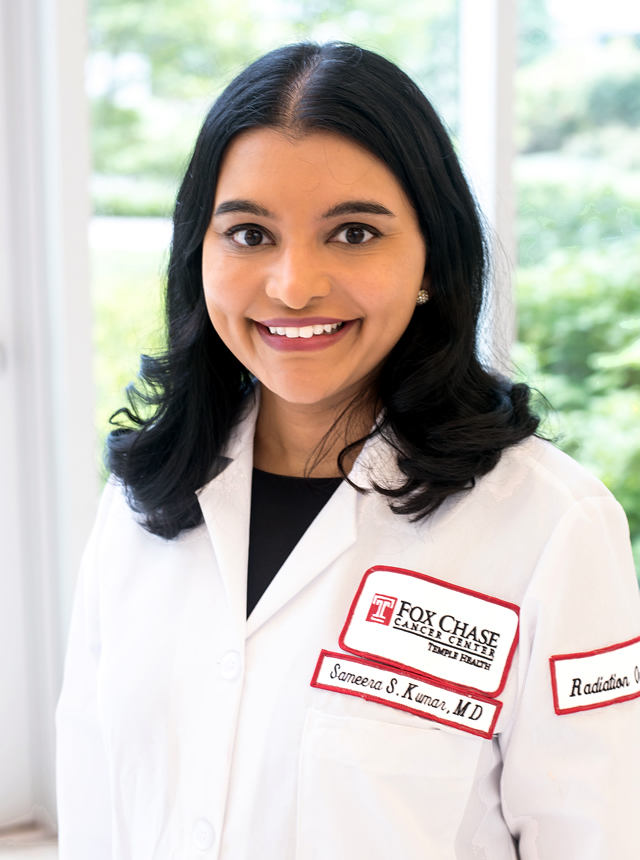
Multidisciplinary Cancer Care: What It Means and Why It Matters
-
There isn’t only one way to treat cancer today. We’re fortunate to have an ever-growing number of treatment options that are contributing to more successful outcomes and higher survival rates. But, keeping track of all those options—and figuring out how best to apply them to individual patients—calls for a coordinated approach.
That’s where multidisciplinary care comes in. Instead of having a patient’s care decided by a single doctor, multidisciplinary care is a team approach that involves a group of experts and healthcare professionals. “It’s multiple branches of oncology synergistically interwoven with patient care,” explained Sameera Kumar, MD, a radiation oncologist at Fox Chase Cancer Center.
The goal is to deliver the best possible treatment while also empowering patients and helping them maintain their quality of life. That calls for a range of specialists who each bring something valuable to the table, including:
- Physicians from various disciplines: surgical, medical and radiation oncologists, diagnostic imaging experts, and pathologists
- Other cancer care specialists: nurses, nurse navigators, genetic counselors, social workers, physical therapists, and hospital pharmacists
Including doctors from different specialties on a care team is key for mapping out the most successful treatment plan, Kumar said. It can also give patients access to treatment options that their primary oncologist may not have considered, such as a clinical trial being conducted in another discipline.
Other cancer care specialists are there to deal with issues that go beyond treatment itself. Genetic counselors, for instance, might help a patient navigate the option of genetic testing, and social workers can make sure a recommended treatment plan will work with a patient’s lifestyle. “The social worker might mention to the doctors that a patient doesn’t have a car and maybe can’t participate in a clinical trial for that reason,” Kumar said.
Fox Chase’s Multidisciplinary Focus
Multidisciplinary care is the standard at most cancer treatment centers today and you can find it at Fox Chase.

A portrait shot of Dr. Sameera Kumar standing in front of a window. Kumar recounts a patient with metastatic lung cancer with a large tumor that was thought to be affecting the patient’s spinal cord. The patient’s primary oncologist reviewed her scans with Kumar, and the two had a conference call with the patient’s surgical oncologist the same day. Together, the three physicians developed a personalized plan to treat the patient’s tumor with a combination of medication, radiation, and surgery.
“There are several times I’ll run upstairs to the medical or surgical oncology clinic to talk about a side effect my patient has,” Kumar said. “They’ll come down to my clinic too. We’re constantly in contact and working together to achieve the best outcome for our patients.”
